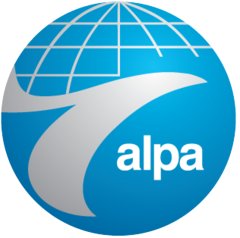Dépêches
Missed Fatigue Rule Deadline Continues to Place Passengers and Cargo at Risk
Dépèche transmise le 2 août 2011 par Business Wire

Missed Fatigue Rule Deadline Continues to Place Passengers and Cargo at Risk
WASHINGTON--(BUSINESS WIRE)--The Air Line Pilots Association, Int’l (ALPA), expressed serious concern today that the White House Office of Management and Budget (OMB) is causing delay in the issuance of the airline flight- and duty-time regulation and minimum rest requirements. Congress mandated an August 1 deadline for the issuance of these important safety regulations, which would apply equally to all airlines. This delay continues to place the safety of airline operations at risk.
“This is a safety regulation, and it is unacceptable that the OMB appears to have been pressured by a few companies whose goal is advancing their own competitive interests rather than ensuring the safety of the U.S. air transportation system”
“This is a safety regulation, and it is unacceptable that the OMB appears to have been pressured by a few companies whose goal is advancing their own competitive interests rather than ensuring the safety of the U.S. air transportation system,” said Capt. Lee Moak, ALPA’s president. “By missing this critical deadline, the White House has stalled a historic, safety-based regulatory effort to create modern duty and rest regulations for U.S. airline pilots.”
In 2009, ALPA, along with other stakeholders from across the aviation industry, participated in the FAA’s Flight/Duty Time Aviation Rulemaking Committee (ARC). The ARC submitted its recommendations to the FAA in September 2009, meeting its deadline as a result of cooperation among government and industry partners who were working toward a shared goal of creating science-based regulations. Taking into account the recommendations of the ARC, the FAA developed proposed regulations that would form the foundation of a regulatory framework to address fatigue.
“Together, the FAA, the airlines, and airline labor created a proposal for science-based regulations that take into account today’s operating environment, provides airlines with scheduling flexibility, and gives pilots the opportunity for the rest they need to perform their jobs and achieve the highest possible safety standards,” said Capt. Moak.
The lack of standardized, science-based flight- and duty-time regulations in the United States has drawn considerable attention from aviation safety organizations worldwide. The U.S. National Transportation Safety Board has named addressing human fatigue among its Most Wanted List of Transportation Safety Improvements since the list’s inception in 1990. In addition, the International Civil Aviation Organization (ICAO), which sets international safety standards for aviation, has mandated science-based pilot fatigue rules and the United States currently fails to comply by not having modern science-based regulations.
As a result of international and national transportation policy concerns and airline accidents associated with pilot fatigue, Congress passed in 2010 legislation directing the FAA to develop and issue science-based regulations to address pilot fatigue by August 1, 2011.
“With each hour of delay beyond the deadline, airline passengers and crews are needlessly put at risk when we know that the solution to addressing pilot fatigue lies in science-based regulations that apply to all types of flying,” concluded Capt. Moak. “The government must stand up for the safety of air transportation in this country and issue new regulations now.”
Founded in 1931, ALPA is the world’s largest pilots union, representing more than 53,000 pilots at 39 airlines in the United States and Canada. Visit the ALPA website at www.alpa.org.
- 07/06 Meeting Cerny-La Ferté-Alais 2025 : Corsair présente un Airbus A330neo
- 07/06 La 52e édition du meeting de Cerny - La Ferté Alais a ouvert ses portes
- 06/06Crash d’un Morane-Saulnier 733 à proximité de la base aérienne de Rochefort
- 06/06 Les Flying Bulls feront le show dans les airs au Red Bull Motormania
- 06/06Meeting Cerny-La Ferté-Alais 2025 : programme des vols avec horaires pour le samedi
- 06/06 Radia présente le WindRunner pour la première fois en France au Salon du Bourget
- 06/06 Air Niugini divulgue une commande de deux nouveaux avions A220
- 05/06 Air Transat prolonge sa liaison Bordeaux - Montréal à l’hiver 2025-2026
- 05/06 Emirates et Air Mauritius renouvellent leur partenariat
- 05/06 Vietjet a commandé des Airbus A330neo supplémentaires
- 05/06 United Airlines inaugure une nouvelle liaison saisonnière sans escale entre Nice et Washington D.C.
- 05/06 easyJet inaugure des nouvelles liaisons vers l'Italie
- 04/06 Cathay Pacific relance sa liaison vers Adélaïde
- 04/06 Nesher Aviation commande des Tecnam P-Mentor
- 04/06 Airbus livre le premier A321XLR motorisé par Pratt & Whitney à Wizz Air
- 04/06 Finnair étoffe son programme hivernal
- 04/06 Le premier Bombardier Global 8000 de série effectue son vol inaugural
- 04/06 Le Groupe Qatar Airways annonce les meilleurs résultats financiers de son histoire
- 04/06 Corsair signe un partenariat avec Hertz
- 01/06Incident au sol d'un Spitfire à Biscarrosse







